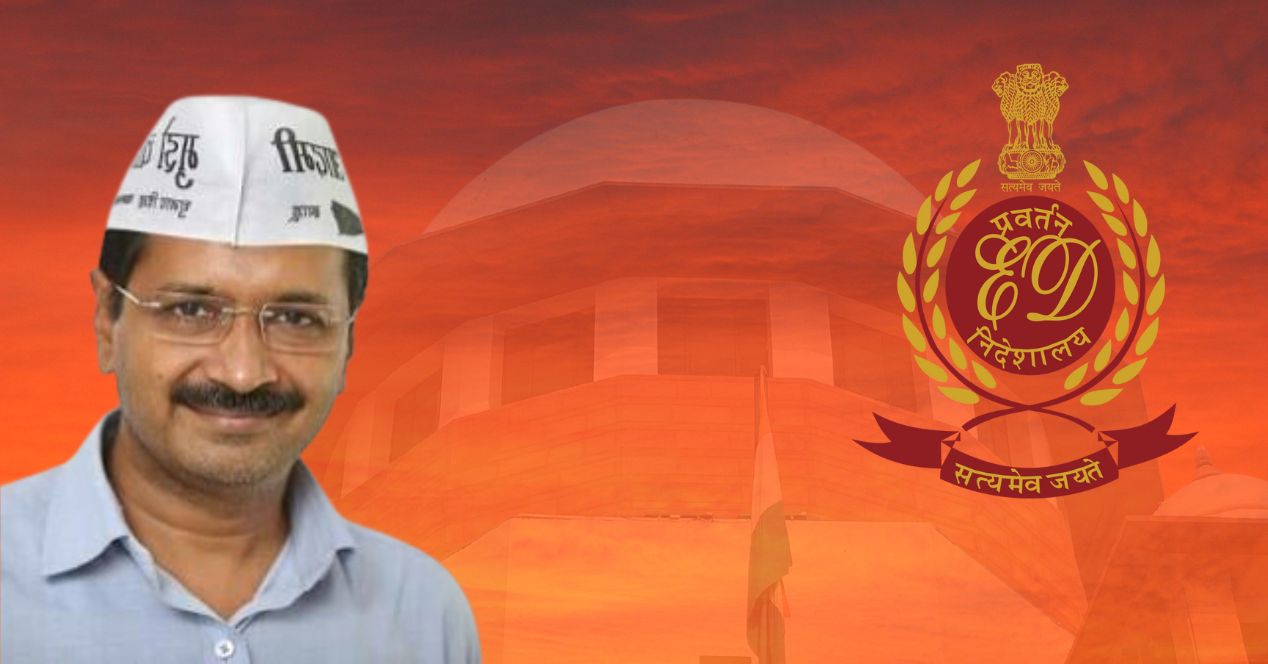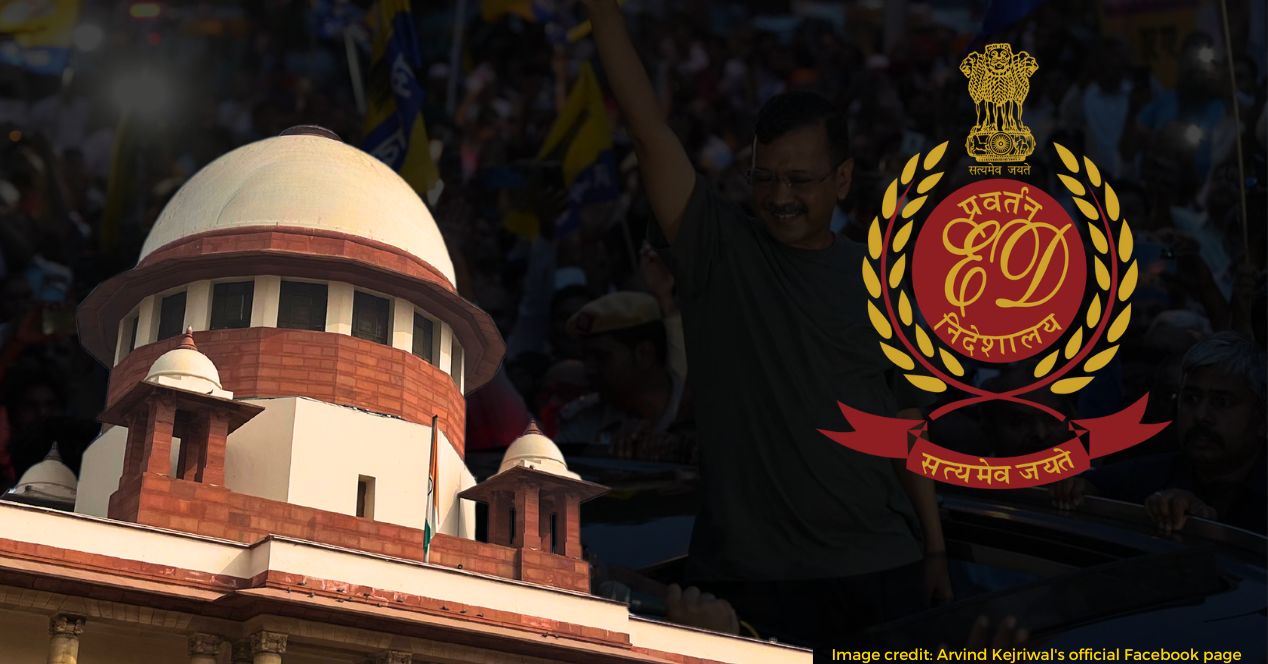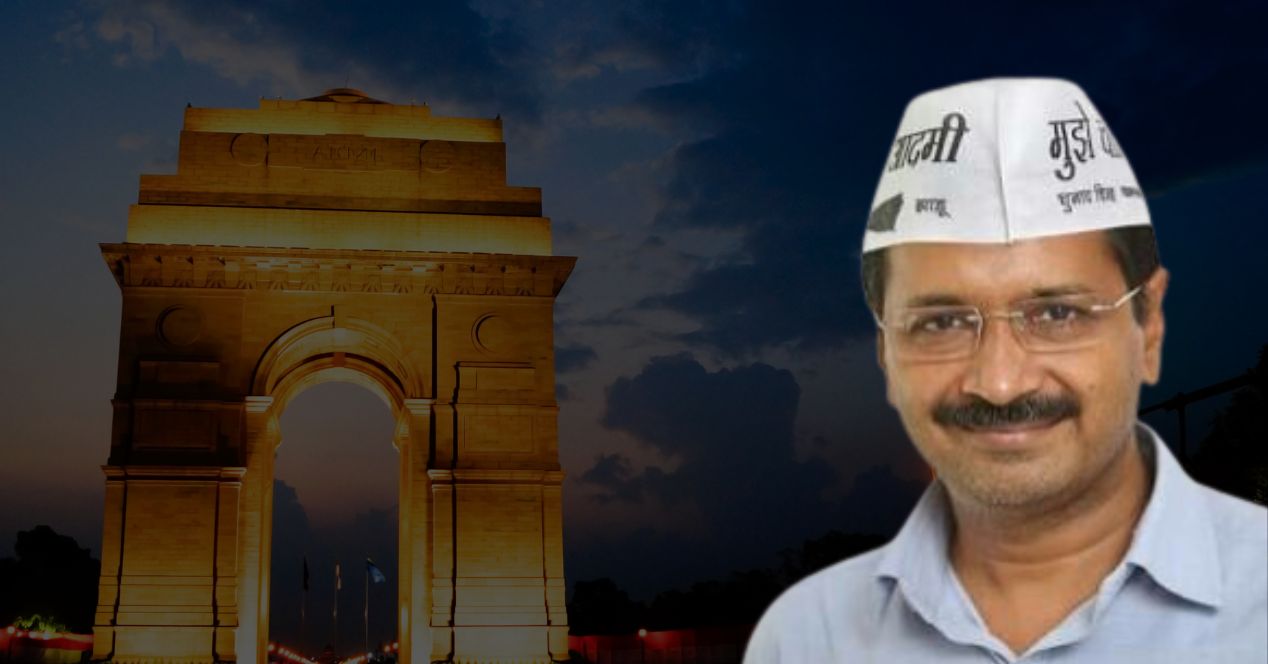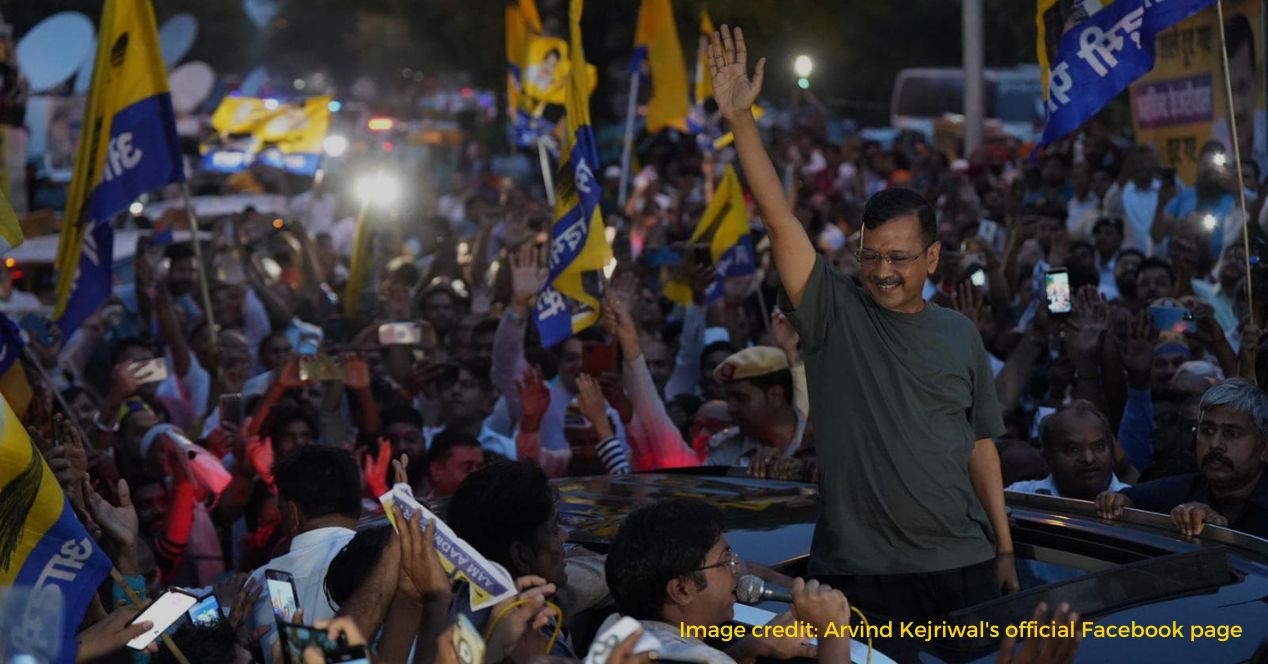Analysis
SC grants interim bail to Kejriwal in ED case; refers question of legality of arrest to a larger bench
Bench said that the question of the 'need and necessity of arrest' is open even as the Delhi CM will have to stay in jail in the CBI case
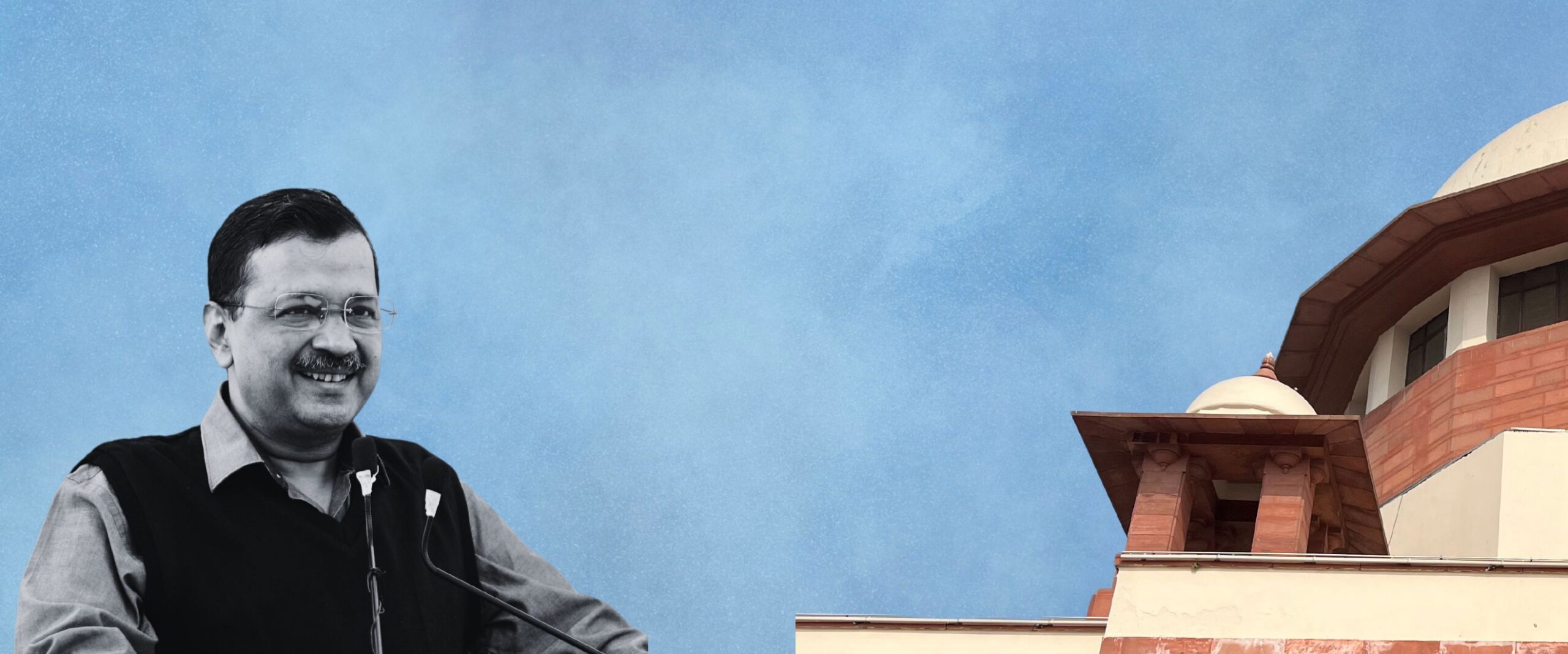
Today, a Division Bench of Justices Sanjiv Khanna and Dipankar Datta granted interim bail to Delhi Chief Minister and Aam Aadmi Party leader Arvind Kejriwal from his arrest by the Enforcement Directorate (ED). Kejriwal was arrested by the ED in March this year for his alleged role in the Delhi Excise Policy scam. The Court had reserved judgement in Kejriwal’s plea on 17 May 2024, before breaking for summer vacation. Today’s judgement was authored by Justice Khanna.
However, Kejriwal will continue to be in prison due to his arrest by the Central Bureau of Investigation three months after the ED arrested him. A plea challenging Kejriwal’s arrest by the CBI in the Delhi Liquor Policy scam is pending before the Delhi High Court.
“Need and necessity of arrest” to be determined by a larger bench
The Court refrained from commenting on the legality of his arrest under Section 19 of the Prevention of Money Laundering Act, 2002 (PMLA). For a person to be arrested under the provision, the following criteria needs to be satisfied:
- The arrest has to be on the basis of material in possession with the ED
- There is reason to believe that the accused is guilty of the offence, with the reason recorded in writing
- The grounds for arrest should be communicated to the accused
In April, Senior Advocate A.M. Singhvi argued that the ED lacked sufficient reasons to believe that Kejriwal was guilty of the offence of money laundering. In today’s judgement, Justice Khanna stated that criteria for “reasons to believe” was satisfied. However, there was an “additional ground” of “need and necessity” of arrest that had to be considered. Khanna mentioned the bench had considered whether this ground should be considered within the Section 19 criteria after referring to certain past decisions. (It is anticipated that the Order, which had not yet been made public at the time of publishing, will list out these judgements.)
Justice Khanna noted that a larger bench will decide whether such “additional grounds” should be read into the pre-existing criteria. The Court framed three issues for the larger bench:
- Whether the “need or necessity of arrest” is a distinct ground to challenge an arrest under Section 19(1) of the PMLA?
- Whether the “need and necessity of arrest” should be subject to the criteria under Section 19 or include personal grounds specific to the “facts and circumstances” of the case?
- What are the parameters and facts to be taken into consideration by a Court when examining the “need and necessity of arrest”?
After reading out the issues, Justice Khanna promptly stated that “mere interrogation” is not a ground to arrest under Section 19.
Supreme Court: “Arvind Kejriwal has suffered incarceration for over 90 days”
“We have, despite our findings on ‘reasons to believe’, considered whether interim bail should be granted to Arvind Kejriwal given that right to life and liberty are sacrosanct,” stated Justice Khanna after reading out the issues.
He stated that the issues referred to a larger bench required an in depth consideration. As the issues remain pending, the Bench found it appropriate to release Kejriwal on interim bail stating that he has been in prison for over 90 days.
The conditions of his release will be the same as those imposed upon him when he was granted interim bail in May 2024. Then, the Court had released him until 2 June so that he could campaign in the 2024 General Election. The following conditions were imposed:
- Kejriwal cannot visit the office of the Delhi Chief Minister and the Delhi Secretariat
- He cannot sign any official files unless it is necessary for obtaining the clearance or approval of the Lieutenant Governor of Delhi
- He may not make any comments on the Delhi Liquor Policy case
- He is barred from interacting with witnesses and accessing official files connected with the case
Justice Khanna noted that the Court was conscious that Kejriwal was an “elected leader,” and did not want to comment on whether he should continue to hold the post, leaving the decision up to Kejriwal himself.
Lastly, the Bench stated that the interim bail will not have any bearing on the merits of the case and that any application for regular bail will also be decided on its “own merits.” Notably, a trial court had granted bail to Kejriwal last month. The Delhi High Court had stayed the trial court’s order in the same week. Singhvi, appearing for Kejriwal, had stated that a fresh application challenging the Delhi High Court’s stay will be filed.
(this report was lasted updated at 2:50 PM on 12 July 2024)

